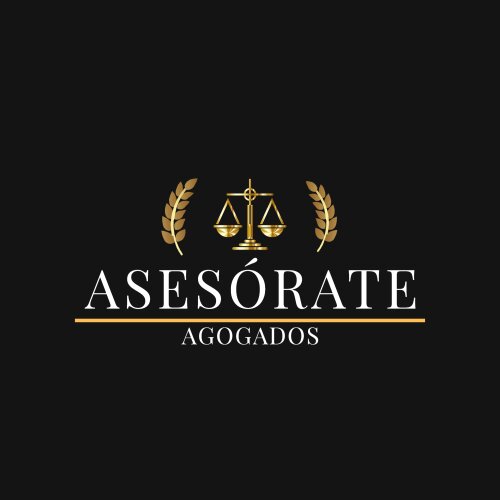Best Constitutional Law Lawyers in Colombia
Share your needs with us, get contacted by law firms.
Free. Takes 2 min.
Or refine your search by selecting a city:
List of the best lawyers in Colombia
About Constitutional Law in Colombia
Constitutional Law in Colombia refers to the branch of law that deals with the interpretation and implementation of the Colombian Constitution. The 1991 Constitution is a comprehensive document that lays the foundation for the country's legal framework, ensuring the protection of human rights, the separation of powers, and the establishment of government responsibilities. It serves as a supreme law, meaning any legislation or governmental action that contradicts it can be challenged and declared unconstitutional. The Constitutional Court, alongside other judicial entities, plays a crucial role in safeguarding these constitutional guarantees by interpreting the Constitution and adjudicating constitutional matters.
Why You May Need a Lawyer
Engaging a lawyer specializing in Constitutional Law in Colombia may become necessary in various situations, including:
- When you believe a law or action taken by the government violates rights protected by the Constitution.
- If you are involved in a case that requires a constitutional review, such as human rights violations or challenges to governmental authority.
- To interpret complex constitutional provisions as they apply to personal or business circumstances.
- When drafting constitutional amendments or initiatives, especially in political or legislative roles.
- If you are part of litigation involving public authorities, where constitutional issues are often prominent.
Local Laws Overview
Constitutional Law in Colombia is governed by several key aspects:
- Fundamental Rights: The Colombian Constitution guarantees extensive rights, including civil, political, social, and economic rights.
- The Constitutional Court: This body is responsible for ensuring the supremacy of the Constitution, reviewing laws, and protecting constitutional rights across Colombia.
- Legal Actions for Protection: The tutela is a legal action available to individuals who feel that their constitutional rights have been violated, allowing for quick judicial intervention.
- Separation of Powers: The Constitution outlines a clear division between the executive, legislative, and judicial branches, ensuring checks and balances.
- Decentralization: Colombia's Constitution supports autonomy and decentralization at the departmental and municipal levels to enhance local governance.
Frequently Asked Questions
What is the role of the Constitutional Court in Colombia?
The Constitutional Court ensures that laws and acts comply with the Constitution. It has the power to assess the constitutionality of laws, protect individual rights, and resolve conflicts involving constitutional interpretation.
How can I file a tutela action?
A tutela action can be filed in any court by anyone who believes their constitutional rights have been infringed. This action is designed to address urgent situations and does not require a lawyer to initiate.
Can the Colombian Constitution be amended?
Yes, the Constitution can be amended through legislative acts, popular referendums, or Constituent Assemblies, following specific legal procedures and requirements.
What are some fundamental rights protected by the Colombian Constitution?
The Constitution protects various rights, including the right to life, equality, freedom, privacy, education, and health, alongside many others.
How does decentralization affect local governance in Colombia?
Decentralization provides local governments with autonomy to address local issues effectively, enabling them to govern and manage their resources independently within constitutional limits.
Does Colombia have religious freedom?
Yes, the Constitution guarantees freedom of religion and mandates the separation of church and state.
How is the President of Colombia elected?
The President is elected by popular vote in a direct election for a term of four years, with the potential for one re-election.
What is a constitutional review?
A constitutional review refers to the process of evaluating the compliance of laws and actions with the Constitution, often carried out by the Constitutional Court or through legal proceedings.
Are there protections against discrimination in the Colombian Constitution?
Yes, the Constitution enshrines equality as a fundamental right, prohibiting discrimination based on race, gender, national origin, and other personal attributes.
What is the principle of checks and balances?
The principle of checks and balances ensures that no branch of government-executive, legislative, or judicial-exercises absolute power, promoting accountability and preventing abuse.
Additional Resources
For those seeking further information and assistance regarding Constitutional Law in Colombia, several resources can be valuable:
- Constitutional Court of Colombia: They provide rulings and insights on constitutional matters.
- National Ombudsman Office (Defensoría del Pueblo): Offers support and guidance for rights protection and constitutional issues.
- Ministry of Justice and Law: Provides resources and information on legal processes and constitutional rights.
- Local Legal Clinics: Many universities offer free or low-cost legal aid on constitutional matters.
Next Steps
If you need legal assistance in Constitutional Law, consider the following steps:
- Research and identify lawyers or legal firms specializing in Constitutional Law in Colombia.
- Prepare a brief outline of your situation, highlighting key issues and your desired outcomes.
- Contact a legal expert for an initial consultation to discuss your case and explore legal strategies.
- Follow the advice of your legal counsel and prepare necessary documents and evidence to support your case.
- Consider alternative dispute resolution mechanisms, like mediation or arbitration, if appropriate.
Lawzana helps you find the best lawyers and law firms in Colombia through a curated and pre-screened list of qualified legal professionals. Our platform offers rankings and detailed profiles of attorneys and law firms, allowing you to compare based on practice areas, including Constitutional Law, experience, and client feedback.
Each profile includes a description of the firm's areas of practice, client reviews, team members and partners, year of establishment, spoken languages, office locations, contact information, social media presence, and any published articles or resources. Most firms on our platform speak English and are experienced in both local and international legal matters.
Get a quote from top-rated law firms in Colombia — quickly, securely, and without unnecessary hassle.
Disclaimer:
The information provided on this page is for general informational purposes only and does not constitute legal advice. While we strive to ensure the accuracy and relevance of the content, legal information may change over time, and interpretations of the law can vary. You should always consult with a qualified legal professional for advice specific to your situation.
We disclaim all liability for actions taken or not taken based on the content of this page. If you believe any information is incorrect or outdated, please contact us, and we will review and update it where appropriate.
Browse constitutional law law firms by city in Colombia
Refine your search by selecting a city.















